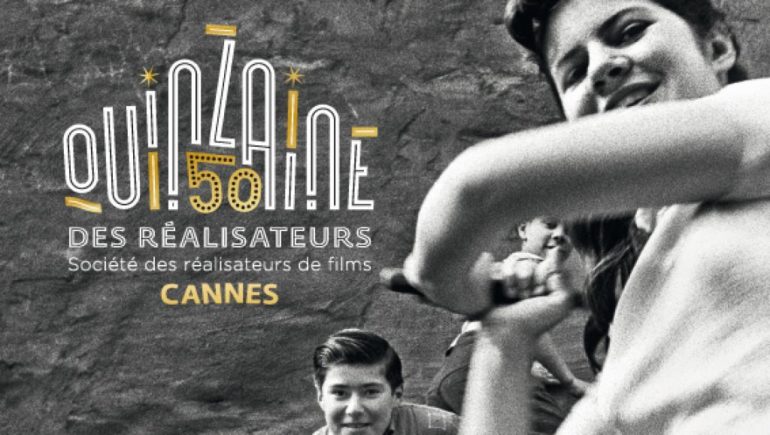May ’68 looms large in French consciousness. It is a defining moment in the contemporary French psyche. Coincidentally, for its 50th anniversary, there is another spate of labour and student conflict opposing the liberal reforms of the new Macron government. Cinema is also an integral component of the French mind-set. As everyone knows, the 7th Art (Cinema) was invented by the French and has always been an intriguing mirror of current events and contemporary thinking, often providing a tangential and sharper interpretation of society and politics than traditional media. Usually this appears on the screen intertwined with the narrative, but sometimes its politics is off the to screen, in the theatres and onto the streets, like for Henri Langlois-Cinematheque controversy. And, of course, in May ’68, when a group of firebrand filmmakers struck out at the establishment and brought the revolution south to Cannes: they shut down Le Festival, already into its second week. Among them were Truffaut, Godard, Polanski and (the recently departed) Milos Forman. Spanish director Carlos Saura went as far as hanging on to the stage curtains to stop his own film Peppermint Frappé from screening. An iconic happening for some, a bonkers moment for others. A few participants -retrospectively- felt press-ganged into the protest.
One of the upsides of this revolutionary verve, however, was the creation in June ‘68 of the French Directors Guild (Le SRF), designed to protect the artistic and economic interests of film directors. In 1969 they launched La Quinzaine des Réalisateurs (Director’s Fortnight) to showcase their kind of cinema as an alternative to mainstream Cannes. It has since been the launch-pad of innovative luminaries such as George Lucas, Ken Loach, Michael Haneke, Spike Lee, the Dardenne brothers, and very many others…
After many years of class-conscious rivalry, relations have matured with this migratory trend from Directors Fortnight to the Competition. Sometimes it is in the reverse direction as is the case this year with Gaspar Noé, returning to Cannes with Climax. The French-based Argentinian director’s reputation of sharply dividing audiences is second only to Lars Von Trier’s. Climax is reported to be an acid trip of a film, somewhere between Dante’s Divine Comedy and Aldous Huxley, in which 90s street dancers congregate in a deserted building to celebrate. Someone spikes the sangria and they find themselves soaring to the heavens or plunging to the depths of despair as they battle for their equilibrium. By the sound of it, Noé’s cine-psycho scalpel also has harsh designs on our audience brains.
In Cannes diplomacy terms —apart from Von Trier’s added out-of-competition slot and Terry Gilliam’s The Man who Killed Don Quixote announced as the official closing film— an interesting new addition to the Competition is French director Yann Gonzalez’s second film, Un Couteau dans le Coeur (A Knife in the Heart), starring the wholesome Vanessa Paradis, cast against type as a female producer of porn flicks in late 70s Paris. The announced thriller-esque plot points could slide to the conventional or veer to the surprising. Gonzalez is also co-president (along with Celine Sciamma) of the aforementioned SRF directors guild, the Umbrella organisation of Directors Fortnight.
While the Official selection mostly travelled East this year with a large number of Middle East and Asian films, the Quinzaine’s artistic director Edouard Waintrop packed his programme with work from Latin America. The opening film will be Colombian directors Ciro Guerra and Cristina Gallego’s Pajaros de Verano (Birds of Passage). After his widely acclaimed Embrace of the Serprent (2015), a journey to jungle extremes, Gallego returns to La Quinzaine with another tale of indigenous encounters with ‘civilisation’. With Birds of Passage, we jouney to the 70s Columbia in the Guajira Desert where a native Wayuu indigenous farming family discovers the windfall economics and incumbent perils of marijuana cultivation in a soaring marketplace… The remaining list include a couple of favorites from this year’s Sundance and, except for true aficionados, many an unrecognizable name. Proof that the Quinzaine’s quest for diversity and innovation is alive and well 50 years on.
A highlight this year’s event will be the Carrosse d’Or (Golden Carriage) Award to Martin Scorsese who presented Mean Streets in La Quinzaine in 1974, and subsequently saw Taxi Driver win the Palme d’Or in 1976. The Carrosse d’Or is a lifetime achievement award created in 2002 by the SRF/Quinzaine and is awarded to directors “for the Innovative qualities of their films and for their audacity and independence”. Previous recipients include Clint Eastwood, Nanni Moretti, Jim Jarmusch, Agnes Varda, Jafar Panahi, Jane Campion and Werner Herzog.
A public interview and a Q&A with the maverick-cum-mainstream cineaste will follow the presentation. Hopefully he will be able to announce to all assembled that, despite the emerging power of the Netflix dollar, this cinema purist and devotee of Langlois’ Cinematheque, has been able to persuade his funders to also play his new major opus “The Irishman” —starring DeNiro, Pacino, Keitel…— in real cinemas.
La Quinzaine des Réalisateurs / Directors Fortnight full programme

